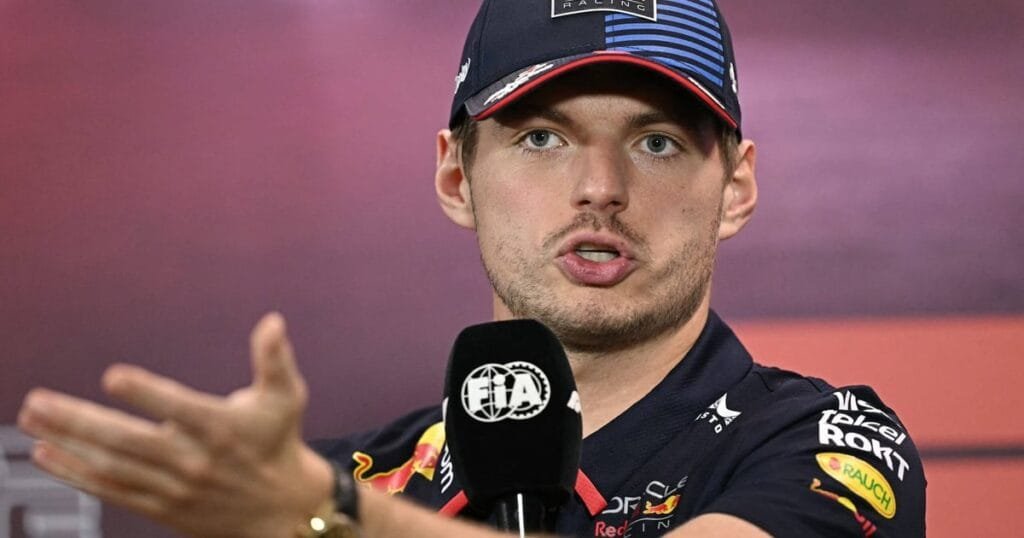Stay informed about all the biggest stories in Formula 1. Sign up here receive the Prime Tire newsletter in your mailbox every Monday and Friday.
The FIA wants the Formula 1 drivers to watch their language and has asked Formula 1 Management to limit broadcasts with swearing. Some drivers, however, feel that the sport’s governing body is too sensitive.
“They just can’t play the radios, so it’s pretty simple on their end,” Lando Norris said. “We’re the guys in the heat of the moment, under stress, under pressure, fighting, having big crashes – it’s a lot easier for them to say than for us to do because we’re out there putting our hearts on the line. trying to race people and we give everything.
“Our heart rates are so high, we just put our passion and our love into it. Of course, there will be some bad words on the other side of it, but that’s just because we’re trying and we want to give our best, and we feel hard when things don’t go well, and if it’s because of excitement, it’s because we’re happy for what happens in it.”
Finally, the FIA wants to ensure that the comments broadcast are not aimed at people or communities. Measures to filter out inappropriate and offensive language have already been taken, such as shouting curse words on the official TV feed and covering them in the graphics when sharing radio messages.
Later Thursday evening, Lewis Hamilton discussed how he doesn’t have explosive radio messages like some of the other drivers. He is known for being more cautious when expressing his thoughts on the team radio.
“It’s good to have some emotions. We are not robots. And for me, the way I control it is because there are like over 2,000 people who work for me to have this position and be where I am,” said the seven-time world champion. “I have a lot of followers of all ages. It’s not about about me. And even though I have this experience on the road, what I do and what I say affects all those people who sacrifice time with their families, who give absolutely everything to have this privileged position and opportunity. that it is just to understand that and put the aggression elsewhere.
“That’s what I’m trying to do.”
GO DEEPER
Hamilton calls out FIA president for ‘very stereotypical’ comments about foul language
During the FIA press conference earlier in the day, Yuki Tsunoda expressed that he felt the FIA was sensitive but acknowledged that there was a line. He admitted that some words cross the line, citing his own radio incident earlier this year. The RB driver received a fine, half of which was suspended, for using capable language over the team radio during Austrian GP qualifying. Tsunoda apologized to the flight attendants and on social media that same day. He admitted that he misunderstood the meaning but that it did not excuse his actions.
Yuki Tsunoda has a seat fitting in the garage during previews before the Singapore Grand Prix. (Rudy Carzzevoli/Getty Images)
But when it comes to random curses, Tsunoda said Thursday, “It’s part of the world that you express the feeling. So I don’t see why there’s a problem.” During Thursday’s FIA press conference in Singapore, Max Verstappen was told to watch his language after swearing while discussing his car in Azerbaijan. The Dutchman also pointed out that the team radios simply weren’t working. can be broadcast and that, “in general, it seems that people are a little more sensitive to things.”
“There are a lot of programs where people can listen to radios and stuff. You probably have to limit this or have some delay that you can censor some things that will help a lot more than putting bans on drivers because, for example, I couldn’t even say the ‘F word.’ I mean, it’s not even that bad, is it? I mean, the car didn’t work, ‘yeah. And then, ‘Excuse me for the language?’ come on
“What are we? Five-year-olds, six-year-olds?”
F1 is quite different compared to other sports because the drivers are microphoned during competition. Other athletes only speak to the media after they leave the field. But in F1, the team radio chat visibility has increased. FIA president Mohammed Ben Sulayem recently told Autosport, “We are the ones who actually approved more [radio] to speak [on the TV broadcast].”
But should the responsibility be more about what is broadcast versus the responsibility placed on the drivers as they compete? When asked if there should be a ban on team radio broadcasting, Norris said, “They have the choice. They get all the radio, and they have the choice to just hit ‘go public’ or not. I don’t think so. You obviously have kids listening and younger people, and from that side, you don’t want it to come out, but honestly, I just think it’s the passion of the sport, and it’s our passion to want to go out and do our best well in a very difficult sport.
“So I certainly don’t think it should be banned.”
Additional reporting by Luke Smith.
GO DEEPER
Max Verstappen’s frustrated radio messages show the growing pressure at Red Bull
Main photo: LILLIAN SUWANRUMPHA/AFP via Getty Images
